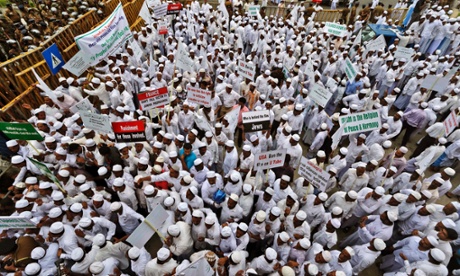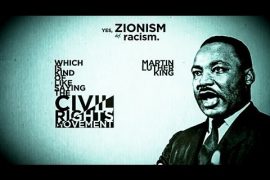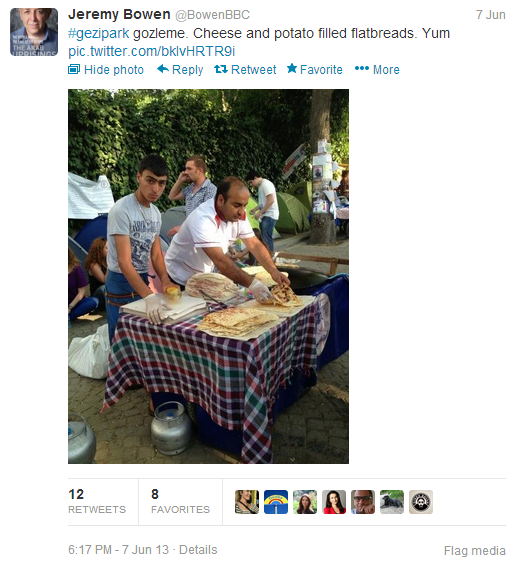After reading the Guardian’s utterly predictable defense of the now discredited Goldstone Report, in the editorial titled “Goldstone Report, the unanswered questions: Indiscriminate warfare, as opposed to deliberate killing, was undoubtedly Israel’s state policy“, I considered fisking the polemic, and writing a point by point rebuttal, but then happened upon Guardian contributor Jonathan Freedland’s essay in today’s CiF, “Where’s the Goldstone Report into Sri Lanka, The Congo, or Darfur?”, and decided on a different tack.
The Guardian’s reply to Goldstone’s retraction of his report’s malicious allegations that Israel willfully targeted civilians, and their insistence on the overall accuracy of the report, says more about their ideologically driven obsession with Israel than it does about the irreparably flawed report itself.
In reading the Guardian’s editorial you’d be hard pressed to know that a fanatical movement dedicated to the destruction of Israel, Hamas – the only internationally recognized terrorist group who governs a polity in the world – had anything to do with the conflict, nor that this reactionary Islamist movement cynically and callously placed arms and weaponry in close proximity to Palestinian civilians. Indeed, in a 640 word essay, the word “Hamas” is used only once.
Inversely to the Guardian’s reflexive hostility to Israel is the respect they pay to an international body which commissioned the report, the UN Human Rights Council – about which Jonathan Freedland observes:
“For who was it that commissioned Goldstone and his team to look into Gaza? It was the UN Human Rights Council. That sounds like an eminently respectable body – until you look at its record. A 2010 analysis showed that very nearly half of all the resolutions it had passed related to Israel: 32 out of 67. And guess which country is the only one to be under permanent review, on the agenda for every single meeting? Israel. There is only one rapporteur whose mandate never expires. No, it’s not the person charged with probing Belarus, North Korea or Saudi Arabia, despite the hideous human rights records of those nations. It is Israel. The UNHRC, whose predecessor body was once, laughably, chaired by Libya.”
Laughable? Yes: But, the humor, and plain absurdity, of taking the sage advice of this club of tyrannies and despots seriously is apparently lost on Guardian editors.
Freedland continues:
“We can laugh at an organisation so potty it would put a murderous tyrant like Muammar Gaddafi in charge of monitoring human rights around the globe. But in its belief that no country in the world behaves worse or matters more, a belief expressed by the sheer volume of attention it pays to Israel, it reflects a view that is alarmingly widespread.”
Yes, its is, as I imagine Freedland is aware, a belief that is “alarmingly widespread” among the Algonquin round table of jurists which crafts the editorial positions at the Guardian.
Freedland continues:
“Many respectable folks have spent decades insisting that the “core issue” in the Middle East, if not the world, is the Israel-Palestine conflict – that it is the “running sore” whose eventual healing will heal the wider region and beyond.”
Of course, such ‘respectable folks” include the editors at the Guardian, who, commenting on the political upheavals in the Arab world, insisted, in a perfect illustration of their calcified political thought, that “the cockpit of the crisis [in the Arab world is], Palestine.”
Freedland continues:
“That was always gold-plated nonsense…”
“Nonsense” that the Guardian accepts continually.
Adds Freedland:
“…but now the Arab spring has come along to prove it. Now the world can see that the peoples of Egypt, Tunisia, Libya, Yemen, Syria and Bahrain have troubles aplenty that have nothing to do with Israel. There could be peace between Israelis and Palestinians tomorrow, but it wouldn’t relieve those in Damascus or Manama or Sana’a from the yoke of tyranny. For them, Israel is not “the heart of the matter”, as the cliché always insisted it was. The heart of the matter is the regimes who have oppressed them day in, day out, for 40 years or more.”
Then, in a passage that sounds as if it’s directed squarely at the paper he contributes to, and their masses of sycophants, Freedland notes:
“Yet it is not the suffering of these hundreds of millions of Arabs which has attracted the sympathy of the UN Human Rights Council. Nor has it stirred the compassion of left-leaning liberal types who pride themselves on their care for the oppressed. Few places get them excited the way Israel does.”
Freedland then observes:
“So in 2009 Sri Lanka could kill between 7,000 and 20,000 civilians, displacing 300,000 more in its bombardment of the Tamils at about the same time as the Gaza conflict – but you will search in vain for the Goldstone report into Sri Lankan war crimes. Nor will you find Caryl Churchill writing a play called Seven Sri Lankan Children – asking what exactly is it in the Sri Lankan mentality that allows them to be so brutal.”
No, such intense moral introspection is only asked of Jews, a continual demand which – despite the Jewish (and Jewish state’s) propensity for self-criticism – is never quite sated.
Returning to the Goldstone Report, Freedland says:
“There is no Goldstone or Churchill to probe the 4 million deaths in the Congo, the slaughtered in Darfur or the murdered in the Ivory Coast, let alone the civilian deaths inflicted by the US and Britain in Iraq and Afghanistan. No one is proposing an academic boycott of those nations or any of the other serial violators of human rights.”
Then, in another passage which seems squarely aimed at the Guardian and broader Guardian Left media:
“Many will say that there is indeed a double standard – but it benefits Israel, routinely protected by a US veto at the UN unavailable to those weaker states deemed hostile. That may be true of the most powerful western governments. But when it comes to the academic, cultural and, yes, the media sphere, the bias often works the other way around.”
Concluding, Freedland observes:
“I fully understand why Jews and Palestinians regard their conflict as the central issue in the universe. But for the rest of the world to see it that way – the way those who dispatched Judge Goldstone saw it – makes no sense at all.
While it’s of course possible to read too much into his refreshing lucidity, Freedland, whose commentary we haven’t always agreed with, seems lately to be exasperated with the Guardian’s mind numbing myopia and, and is writing in a manner suggesting a desire to stand athwart the dangerous ideological tide of the behemoth institution he’s tied to, yelling, stop!
Liberalism, in its very best tradition, is an orientation which is disinclined to accept the received wisdom of powerful individuals and institutions, and is informed by an inclination to be thoughtfully suspicious of popular opinion and to think seriously and critically about those facts and ideas which everyone just knows is true.
The competing reactions – by Freedland and the Guardian – to Goldstone’s retraction of the most serious allegations made against the Jewish state in the report which bears his name is a great illustration of the fact that when it comes to challenging such received opinions about Israel, Jonathan Freedland is the true liberal.




